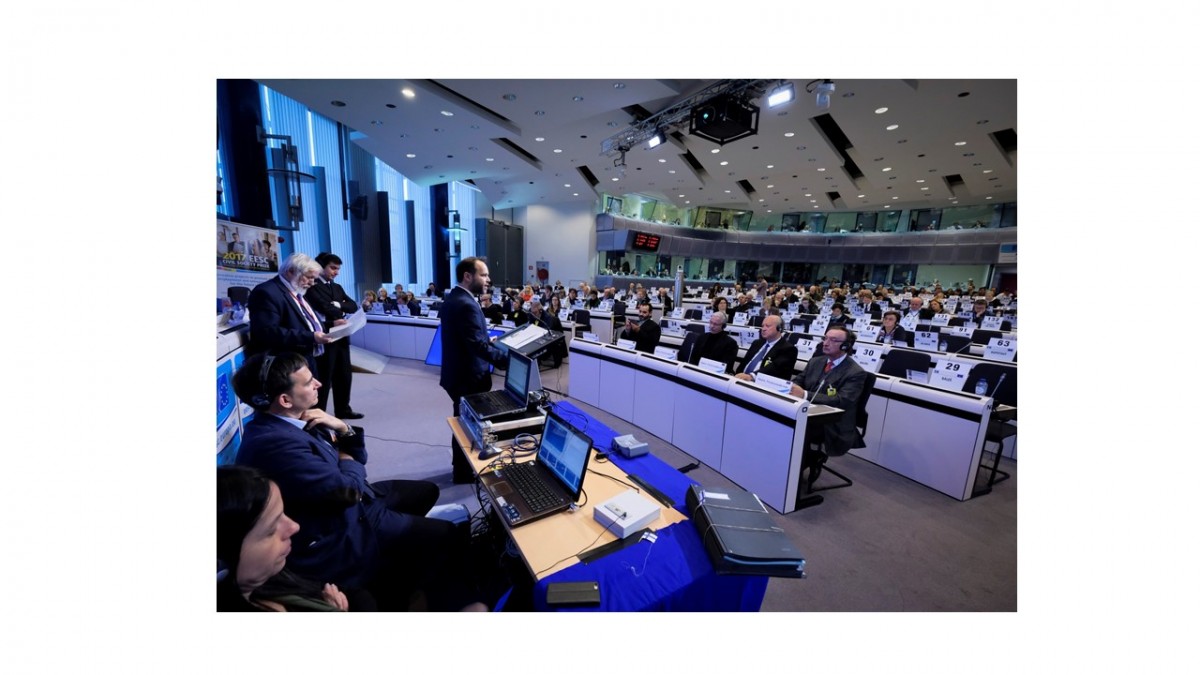
Civil Society Prize to Revive Greece
The “REvive” initiative from Greece is awarded the Civil Society Prize by the European Economic and Social Committee at a competition with the topic of authentic entrepreneurship and the great work concerning employment.
The first prize was awarded to the German initiative “Discovering Hands“. The rest of the prizes were given to initiatives from Belgium, Italy and Spain.
The top five winning initiatives highlight the work of multiple NPOs across Europe who support the entrance of some of the most vulnerable social groups into the job market. Each one of the winning initiatives projects, in its own way, the crucial role that organizations play in compacting exclusion phenomena in the job market and encouraging people of all ages and heritages to break through the employment or the entrepreneurship world.
“It is a great joy and honor to present these prizes to the winners. I am making use of this opportunity to not only congratulate them, but to also pay tribute to all individuals and civil society organizations , who, through their incessant work and their dedication to the amelioration of our fellow people’s quality of life have set an example for all”, Mr. George Dassis, the President of EESC, mentioned in his speech.
During the delivery of his prize at EESC’s plenary session, Theodoros Dimakarakos of Revive Greece mentioned: “We thank you for the great honor that is the acknowledgement of our efforts”. Mr. Dimakarakos, using European Commission΄s data, touched upon the subject of one million displaced people who have made their way into Greece the last three years, mostly coming from African or Middle Eastern states. “Many of them have a high level academic education, especially in the science and the technology field, and they remain an average of two years in Greece until the completion of the procedures that are granting them permission to go to another European country”. Τhe Director of Revive Greece spoke about a deficit of 400.000 programmers in European Union΄s states that is predicted to increase up to 800.000 the next two years. “By training these people and bringing them into contact with European employers we prove that solidarity and humanism can quickly lead to economic growth in the European Union.” Mr Dimakarakos concluded.
The German initiative “Discovering hands“, that trains blind or with impaired vision women to use their especially developed sense of touch for the betterment of the early breast cancer detection, was awarded the prize of 14.000 euros.
The other four initiatives from Greece, Belgium, Italy and Spain were awarded the prize of 9.000 euros each. The initiative “DUO for a JOB” from Belgium is a transgenerational and intercultural guidance program that offers free of charge customized services for 6 months to young immigrants that are looking for a job provided by people over 50 years old who have professional experience in similar fields. The Italian initiative “Progetto Quid” of Cooperativa Sociale Quid is a societal association that supports the integration of vulnerable and disadvantaged groups, like asylum seekers and victims of slavery, prostitution and domestic violence, into the job market. The Spanish initiative “Laundry ID” of “Institute of Robotics for Dependency (IRD)” aims to create working positions for disabled people in a dry cleaner that has been technologically re-designed and has been adjusted to their needs.
The five winning initiatives were selected from a list that included more than 100 initiatives. The high number of participants in the 2017 competition for the Civil Society Prize indicate that unemployment is still an existing problem in Europe, where one out of ten citizens is unemployed and one out of four citizens is facing the danger of poverty or social exclusion. The civil society’s initiatives are often in a position where they can help in a more customized way those who are more excluded in the job market, which is of vital importance as for the cover of their needs.
The Civil Society Prize, which already counts nine events, is awarded to “high performance civil society’s initiatives”. Each year, the award covers a different aspect of EESC’s activities. The 2016 prize was dedicated to civil society’s organizations that work for the amelioration of refugees and immigrants quality of life.
More information about the Civil Society Prize – award ceremony 2017 is available here. You can also watch the winning initiatives’ video here.

